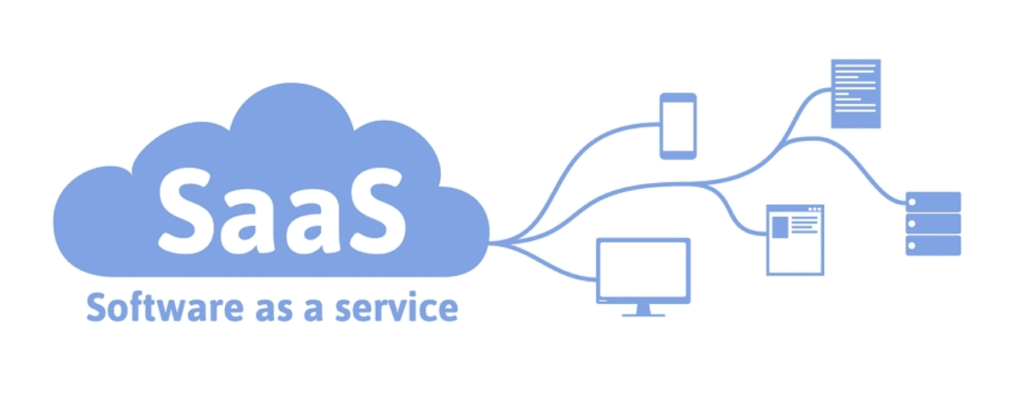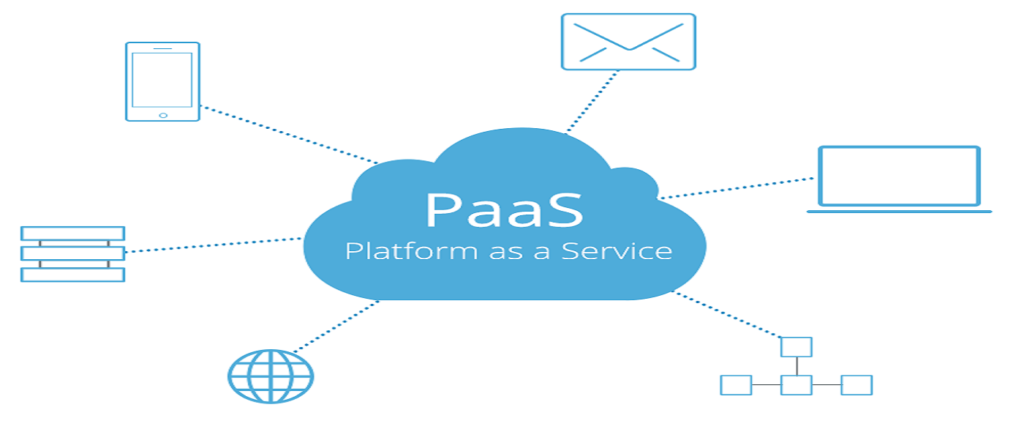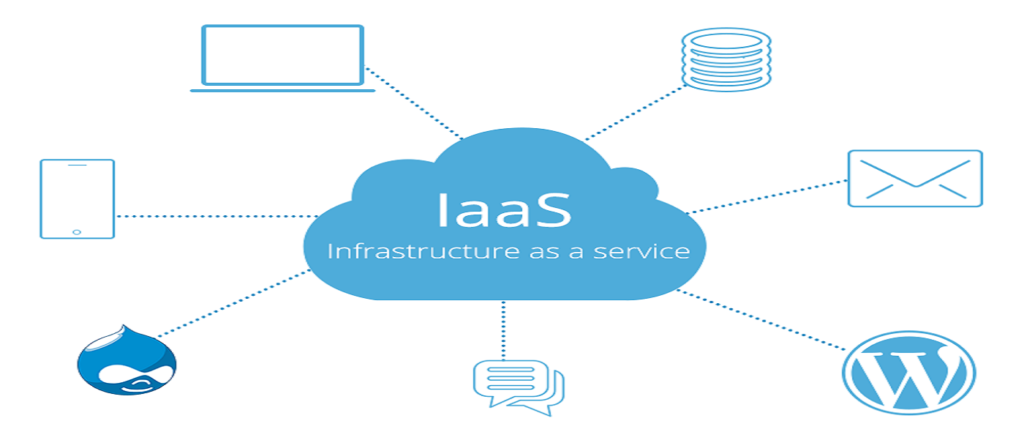
Going to the actual topic first, we should see what cloud computing is? What are the cloud services?
Cloud computing is here and has been accepted by many a corporation. Cloud computing as defined by the US National Institute of Standards and Technology (NIST) is
“a model for allowing accessible, on-demand network access to a distributed pool of configurable computing resources (e.g., servers, applications, networks, storage, & services) that can be swiftly provisioned and delivered with insignificant administration effort or service provider interaction.”
Cloud computing is primarily about outsourcing IT resources accurately like you would outsource services like Electricity or water off a shared public grid. The cloud services options include:
1. Software as a Service (SaaS)
Whereby the user utilizes the cloud provider’s applications running on cloud infrastructure, and the applications are accessible from multiple customer devices through a fragile customer interface such as a web browser (such as web-based email).

2. Platform as a Service (PaaS)

Here the user uses their applications on the provider’s infrastructure. The option, as mentioned above, permits the client to develop business applications and take them online promptly. They encompass services like Sales Force Automation, Email Campaign management, Employee management, Vendor management, etc.
3. Infrastructure as a Service (IaaS)

The buyer has a way of processing, networks, storage, and additional significant computing resources where the user can employ and operate optional software, which can incorporate operating systems and applications.
The user doesn’t operate, control or manage the underlying cloud infrastructure but has authority over operating systems, storage deployed applications, & likely insufficient control of chosen networking parts (e.g., host firewalls). Rackspace Cloud and Amazon EC2 are examples of IaaS.
Now coming to the actual topic that was why should a company go for the cloud? Deciding to migrate business services to Cloud Computing circumstances is not an easy job.
Each company is a different universe and has distinct needs and requirements, it has systems adapted to its business processes, policies and procedures for data management govern it, and most importantly, it protects access to your information at different levels.
SO WHY SHOULD A COMPANY THAT ALREADY WORKS WITH A PLATFORM ADAPTED TO ITS BUSINESS MIGRATE TO A CLOUD COMPUTING ENVIRONMENT?

To answer this question, it is necessary to originate a feasibility analysis process in the corporation that permits considering the scenarios in which the adoption of Cloud Computing services undoubtedly reshapes the business and helps establish the cost/benefit ratio that can be achieved.
To obtain from migrating from the current platform to a Cloud environment. The answer to this question can be easily solved if we establish a list of criteria that allow us to clearly establish the tangible benefits of using a Cloud Computing environment.
The Cost of the IT platform
- What percentage of my company’s budget is allocated to the maintenance of technological infrastructure?
- How much money does the dedicated server or servers and the Colocation in data center X cost the company?
- How much time and money has my company invested in replacing parts for hardware damage?
- How much is the amount of losses that the company is willing to assume for having corporate services offline due to a hardware failure?
- What is the area assigned by the company for the sustainability of an alternate data center? Does my company have an alternative data center?
- How much money does the company represent maintaining the data warehouse of backups (purchase of disk-storage, electricity, software licenses, physical space, physical security, etc.)?
- How fast is the hardware on the company’s platform depreciating?
- What hidden costs can have to underused servers (energy consumption, maintenance, etc.)?
- How much money represents to the company the operation of the access systems and perimeter control of the data center?
IT Platform Security

- What are the risks of deploying the company’s platform in a Cloud Computing environment?
- Do corporate services have robust systems for user authentication, auditing, and management? Can these systems be used in a Cloud environment?
- Can the organization’s security policies be adapted to a Cloud Computing environment (access controls, Firewall rules, VPN, IDS, etc.)?
- Should access to business services be allowed from networks other than the corporate system?
Platform Management

- How long does it take to have corporate services available after a service outage with the current platform, how long with a Cloud Computing environment?
- What is the level of difficulty for service restoration using an alternate data center and in a Cloud Computing environment?
- How easily do the administration, monitoring, and backup processes of the servers that make up the company’s technological infrastructure develop?
- Is it possible to replace the backup procedures to removable media or data warehouses to cloud storage services?
- What capacity does the current platform have, and is it planned to support the growth in the demand for services in the coming months or years?
- How long can it take for the technology provider/distribution channel to supply the company with hardware such as storage devices, new servers, or to replace damaged parts?
Final Thoughts on Today’s Topic
Therefore, companies must carry out an adequate analysis of the uses that they can give to Cloud Computing technology and the benefits that this entails, before making any changes that may lead to disappointment regarding what the cloud can offer them.
Intelvue for Reliable Cloud Services in the US and All over the Globe
Intelvue offers Microsoft Azure, AWS, and Google Cloud Platform to its valuable customers to help them accomplish their technological goals. Intelvue will take your business to another level with our Cloud Services and solutions.
Contact Intelvue for more information about how cloud services can advance your work efficiencies and save your penny, or meet us today.
Frequently Asked Questions About Cloud
Why is cloud computing good for business?
Cloud computing is the best friend of small businesses more than huge corporations given the fact that it decreases the cost of operations and delivers more accuracy, speed, robustness to the system. The businesses should take some time to say thanks to innovative technologies that give software, storage, & infrastructure with the help of the cloud. Cloud computing allows businesses by minimizing their huge IT expenses.
Which cloud service is the best for small businesses?
| Rank | Name | Offer | Review |
| 1 | Amazon S3 | $0.023 /GB /mo. | With diverse options of storage at affordable prices. Ability to integrate with Amazon Products |
| 2 | Azure Storage | $0.002 /GB /mo. | Excellent Support and rich features for every type of organization. |
| 3 | pCloud Business | $3.99 /user /mo. | pCloud Business offers 2TB storage for a lifetime. The File management feature is very easy to use. |
| 4 | DropBox | $9.99 /mo. | Very easy to use. Excellent collaboration and rich file sharing features. |
| 5 | Google Cloud | $0.02 /GB /mo. | Google Cloud Storage allows its user to sync their data with their highly secure storage options. |
| 6 | Google Drive | $1.99 /mo. for 100 GB. | Google Drive allows users to save multiple types of files and share access with other users. It is giving 15 GB storage for free. |
How do cloud services work?
Corporations usually maintain their own servers or powerful centralized computer machines that can be accessed or can be used by other workstations, on-premises. A cloud server that has these centralized computer machines or servers stored offsite & maintained by another organization. These are the most common cloud services that are provided in the market.
What are the four benefits of cloud storage?
- Users have complete accessibility
- There is no risk of lost files due to some hardware or software issues.
- The highest level of Collaboration is possible.
- The highest level of scalability is possible with the help of cloud storage.
What are the disadvantages of using cloud storage?
- Cloud-based software or services totally depend on internet connection. Slow download and upload speed can cause a lot in real-time.
- You put all your credentials on the cloud, which is maintained by the third party, so there is a high risk of privacy to be violated.
- Customer support is not a more substantial pillar offered by cloud services. It may hurt somehow.
- Using a cloud can be costly for home devices.
Why the Cloud is bad?
Whenever you save your data, information, companies’ documents, or anything else on the Internet, then cyberattacks can harm your information somehow. This is the biggest problem of cloud storage. If any single string of your cloud goes bad, then be ready for a significant impact for a very massive group of individuals.
Where is cloud storage stored?
Storing the data into your own hardware, or servers, your data is stored somewhere else on the planet – on servers that are owned by huge giants like Amazon, Google, etc. And with the help of the Internet, it is accessible to you.